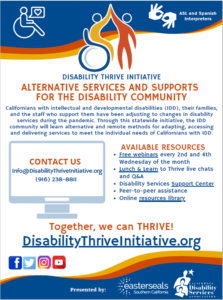Christopher Wilson, 30, in the Edgerton home he shares with his parents, Rick and Sue, has worked for more than a decade at Opportunities, Inc. a Fort Atkinson, nonprofit that provides services for the area’s developmentally-disabled.
For decades, facilities where people with disabilities do basic jobs while separated from non-disabled workers were praised for providing those with developmental disabilities opportunities to learn skills and build friendships.
But in recent years, increasing numbers of people, including disability rights advocates and federal officials, have raised concerns that many of these nonprofit training programs, known as “sheltered workshops,” keep disabled workers trapped in low-wage jobs — often making $2 to $3 an hour — and fail to help them move on to higher-paying opportunities in the private or public sectors. Read more.






